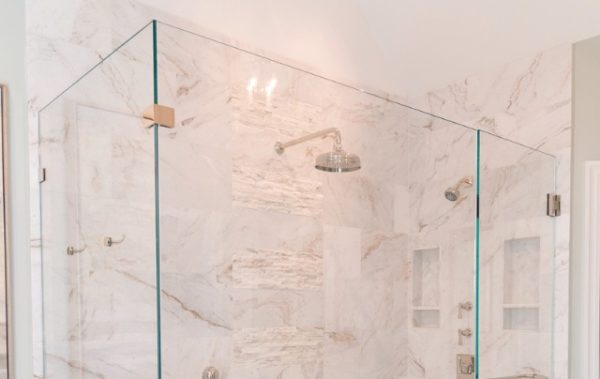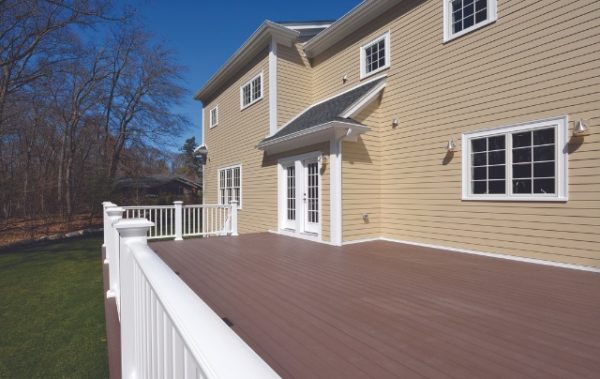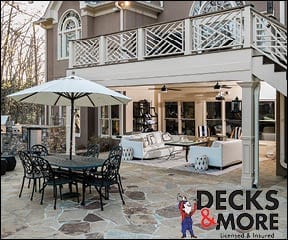Tile Style

 |
| The right tile can turn an ordinary bathroom into a work of art. |
From the ground up, tile offers homeowners a simple yet distinctive way to dress up their homes. Whether its on the floors, walls or counters in the kitchen, bathroom or hallway, tile provides added dimension to any space. To get the best effect with tile, make sure you have the right tile to suit your needs. Not sure which tile to select? Read on for Tile Basics 101.
First and foremost, there are a variety of tile types available for residential interior use. To decide which tile to select, think about where and how you plan to use it. Is it a high-traffic area? Will it be exposed to moisture? Will food come in contact with the tile? Knowing the answers to these questions will help you choose a tile with the correct durability, porosity (how much water is absorbed) and maintenance requirements for your project. The most popular tile types are ceramic, Mexican, natural stone (slate, granite, marble, etc.) and porcelain.
Ceramic
Ceramic tiles are made of clays that have been shaped and fired in a kiln. They may be glazed or unglazed (also called quarry tiles). A glaze is a liquid glass that has been sprayed or poured onto the surface of the tile, says Elisabeth Stubbs, owner and showroom manager of Enhance Floor Trends Inc. in Marietta. This glaze adds color and stain resistance to the tile.
Unglazed tiles retain the natural color of the clay. These tiles require sealing for stain resistance. Unglazed tiles are true inlaidthey are simply baked pieces of clay whose colors run throughout the body, Stubbs says. This is an advantage with wear and durability.
Ceramic tile makes a great choice for a variety of uses: floors, walls, countertops, backsplashes, etc. Ceramic tile can be inexpensive and is still extremely durable, Stubbs says. The tiles are practically stain proof. There are numerous colors, sizes, textures and gloss levels to choose from with ceramic. On average, ceramic tiles range in price from less than $1 per square foot to $6 per square foot. Also, ceramic tile requires little maintenance other than regular sweeping, vacuuming and mopping for floors and general wiping for countertops, backsplashes and walls.
Mexican
Unlike ceramic tile, Mexican tile is air-dried, making it a bit softer and less durable. It is available raw or sealed, but should be sealed when used indoors. It may take three to four coats of sealer, says Marion Zumpano of Design Tiles by Zumpano Enterprises in Atlanta, which can affect the tiles color. If using a petroleum-based sealer, the sealer will enhance the colors in the tile, she says. A water-based sealer will keep the colors in the tile as in its natural state.
Like ceramic tile, Mexican tile is relatively inexpensive, either raw or sealed. Mexican tile is very inexpensive when purchased raw and is only approximately $1 more to $1.50 more per square foot to purchase sealed, Zumpano says.
Once sealed, Mexican tiles require little maintenance. Use a mild detergent, Zumpano says. When the sealer wears down or a traffic pattern is noticed, re-sealing with the same sealer is all thats necessary to bring back its original luster.
Natural stone
The most common natural stone tiles include slate, granite and marble. We are seeing more and more interest in natural stones, especially slate, Stubbs says. For fireplace surrounds, we sell a lot of marble. Like ceramic tiles, natural stone tiles also look great on countertops, floors and walls. Granite is very popular in kitchens on countertops and bars, while marble is frequently chosen for bathroom floors, walls and countertops.
It is imperative that all natural stone tiles be sealed. Granite has a low porosity, but we always recommend sealing it, Zumpano says. Marble always has to be sealed.
Unlike other tiles, natural stone tiles can be quite pricey. Natural stone is the most expensive of all, but to many people its the most beautiful, Stubbs says. Average prices range from $4 to $20 per square foot.
Maintaining natural stone also is more extensive than that for other tiles. [For marble], caution needs to be taken with the products used for cleaning, Zumpano says. Only very mild detergents that dont have ammonia or vinegar [should be used]. These products do not affect the marble, but will remove the shine, and [it] is costly to bring back to its original luster. Stubbs also recommends sealing slate and granite on a yearly basis.
Porcelain
Special clays and minerals similar to those found in porcelain china comprise porcelain tiles. The special clays allow the product to be fired at extreme temperatures resulting in a denser (less porous) and harder body, Stubbs says. Like ceramic, porcelain tiles may be glazed or unglazed. Porcelain tiles are quite common in flooring, walls and backsplashes. Use caution when selecting porcelain for a flooring project. The smooth surface of porcelain can be slippery, particularly if a glossy glaze is used.
 |
| This autum slate backsplash with black granite inserts enhances the design and decor of this kitchen. |
Costs for porcelain tiles generally run between $1.95 and $6 per square foot. Over the VERY long term, porcelain will wear better than ceramic, Stubbs says. Little maintenance also makes porcelain a popular choice. Their maintenance is minimal: damp mop with detergent or just water, Zumpano says.
A second consideration in selecting tile is durability. Some people will tell you that you can install a wall tile on the floor, Stubbs says. You cantits not durable enough. The best way to judge a tiles durability is by using the Porcelain Enamel Institute hardness ratings (see sidebar). Keep in mind that durability doesnt necessarily equal quality. The wear rating of a tile has nothing to do with quality or price, only durability, Stubbs says. Some of the most expensive and luxurious tiles in the world have a low durability rating.
A third thing to consider when choosing tile is color. Dark color glazes such as blacks and blues are usually softer than light-colored ones, Stubbs says. She also recommends staying away from trendy colors. You tend to pull up a tile floor for only two reasons: Either it was installed improperly or you do not like the color, Stubbs says. So put a lot of thought into the color of the tile. Youll have it for a very long time.
Installation generally is the same for all tile types. For cement slabs, tiles can be applied directly to the slab. If you have a wooden subfloor, its critical to install a cement backer board prior to installation. You may be told that tile can be installed directly on your plywood subfloor and that a backer board is not neededdont listen! Stubbs says. Youll have problems with your tile cracking. Average installation costs range from $7 per square foot for a slab installation to $10 per square foot if cement backer board is required.
After installation, homeowners can dress up their tile in a variety of ways. There are many different accents to enhance the appearance of a floor or kitchen backsplash, Zumpano says. There are marble and stone liners with intricate designs, or many manufacturers are producing matching listellos (border tiles similar to molding), also with attractive designs. Other accent pieces include moldings, decorative trim pieces and feature strips. You can even take a favorite photograph, have it made into a tile, and installed on your wall or backsplash, Stubbs says. There are unlimited design options with tile.
The key to the right tile for you is researching to make sure you pick a tile that meets your durability and porous requirements as well as your design ideas. While this article provides valuable tile basics, be sure to consult the professionals at your local tile and home improvement stores. Purchasing your tile from a reputable distributor or dealer with knowledgeable sales personnel is the first step in purchasing the quality of tile needed in any application, Zumpano says.

Atlanta Concrete Leveling Company B-Level Talks to Showstoppers


Editor’s Picks_0112
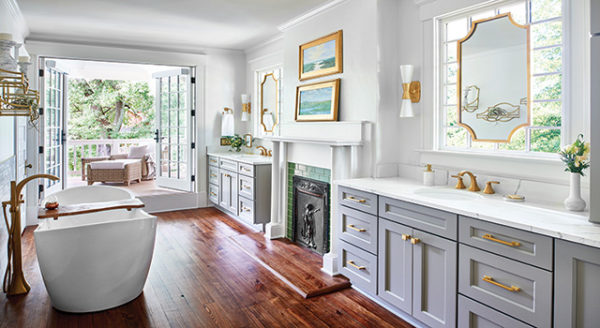
Award-Winning Kitchens, Baths, Interior Design and More
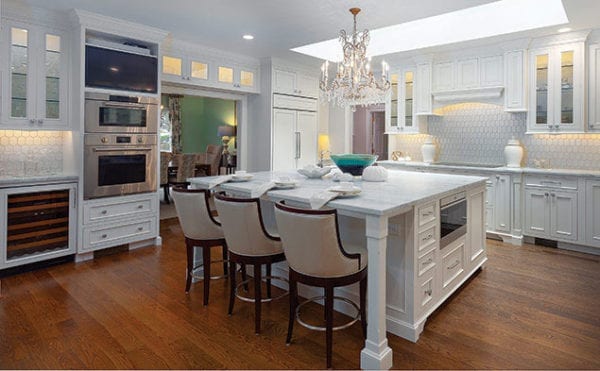
Atlanta’s NKBA Designs of Distinction 2019 Winners

100 Things to Know Before You Remodel
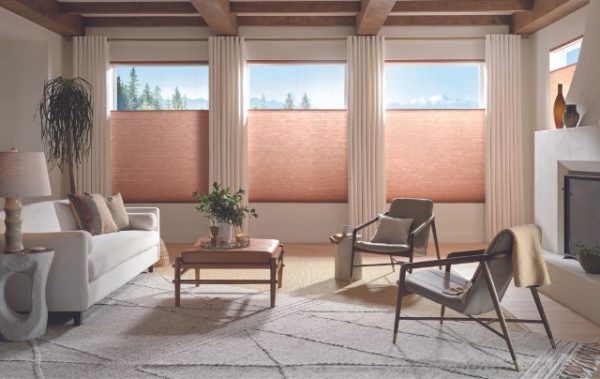
What’s the simplest way to upgrade your window treatments?
